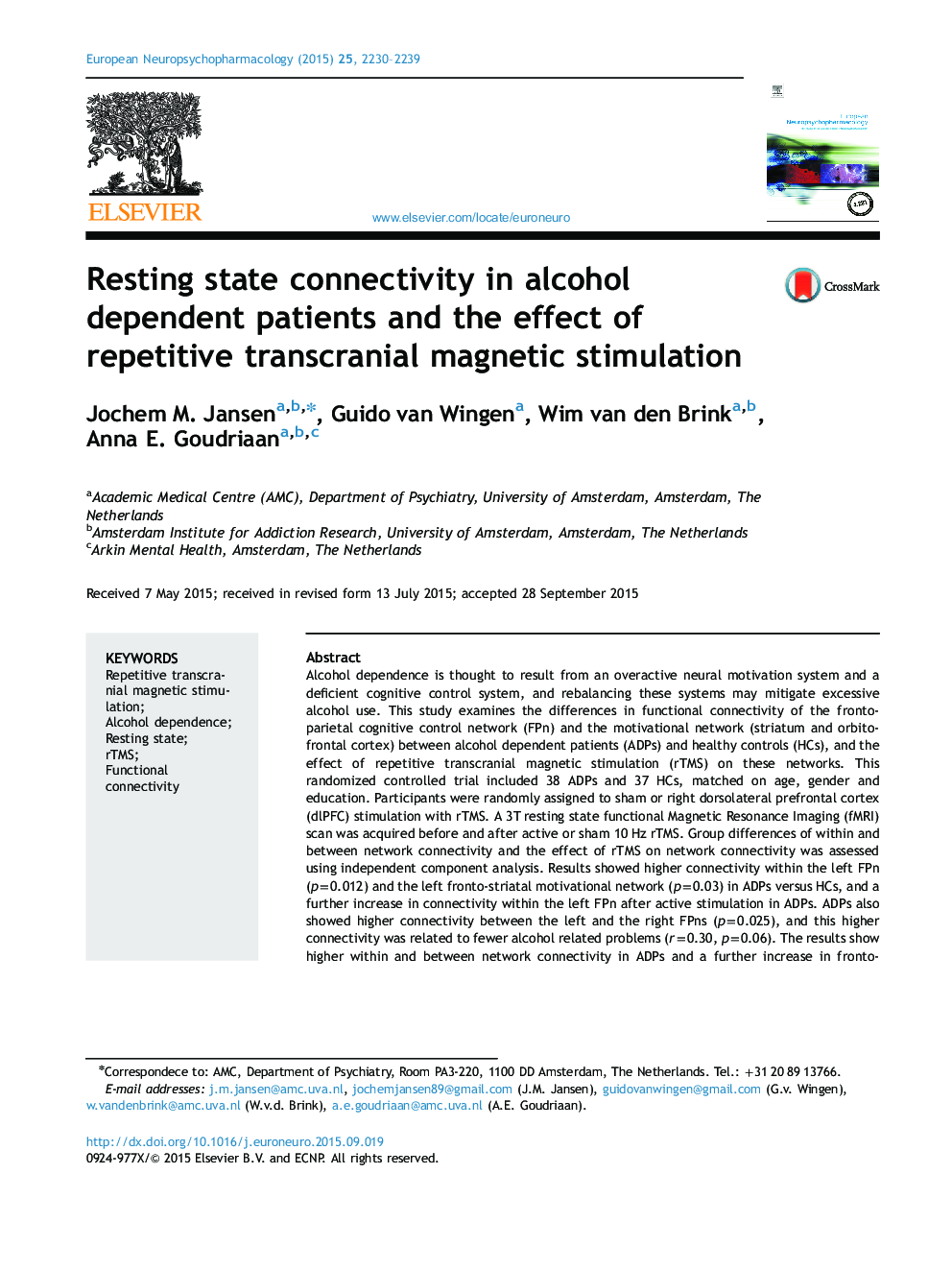| کد مقاله | کد نشریه | سال انتشار | مقاله انگلیسی | نسخه تمام متن |
|---|---|---|---|---|
| 10299029 | 539680 | 2015 | 10 صفحه PDF | دانلود رایگان |
عنوان انگلیسی مقاله ISI
Resting state connectivity in alcohol dependent patients and the effect of repetitive transcranial magnetic stimulation
ترجمه فارسی عنوان
اتصال حالت دولت در حالت وابستگی به الکل و اثر تحریک مغناطیسی تکراری مغناطیسی
دانلود مقاله + سفارش ترجمه
دانلود مقاله ISI انگلیسی
رایگان برای ایرانیان
کلمات کلیدی
موضوعات مرتبط
علوم زیستی و بیوفناوری
علم عصب شناسی
روانپزشکی بیولوژیکی
چکیده انگلیسی
Alcohol dependence is thought to result from an overactive neural motivation system and a deficient cognitive control system, and rebalancing these systems may mitigate excessive alcohol use. This study examines the differences in functional connectivity of the fronto-parietal cognitive control network (FPn) and the motivational network (striatum and orbitofrontal cortex) between alcohol dependent patients (ADPs) and healthy controls (HCs), and the effect of repetitive transcranial magnetic stimulation (rTMS) on these networks. This randomized controlled trial included 38 ADPs and 37 HCs, matched on age, gender and education. Participants were randomly assigned to sham or right dorsolateral prefrontal cortex (dlPFC) stimulation with rTMS. A 3T resting state functional Magnetic Resonance Imaging (fMRI) scan was acquired before and after active or sham 10Â Hz rTMS. Group differences of within and between network connectivity and the effect of rTMS on network connectivity was assessed using independent component analysis. Results showed higher connectivity within the left FPn (p=0.012) and the left fronto-striatal motivational network (p=0.03) in ADPs versus HCs, and a further increase in connectivity within the left FPn after active stimulation in ADPs. ADPs also showed higher connectivity between the left and the right FPns (p=0.025), and this higher connectivity was related to fewer alcohol related problems (r=0.30, p=0.06). The results show higher within and between network connectivity in ADPs and a further increase in fronto-parietal connectivity after right dlPFC rTMS in ADPs, suggesting that frontal rTMS may have a beneficial influence on cognitive control and may result in lower relapse rates.
ناشر
Database: Elsevier - ScienceDirect (ساینس دایرکت)
Journal: European Neuropsychopharmacology - Volume 25, Issue 12, December 2015, Pages 2230-2239
Journal: European Neuropsychopharmacology - Volume 25, Issue 12, December 2015, Pages 2230-2239
نویسندگان
Jochem M. Jansen, Guido van Wingen, Wim van den Brink, Anna E. Goudriaan,
